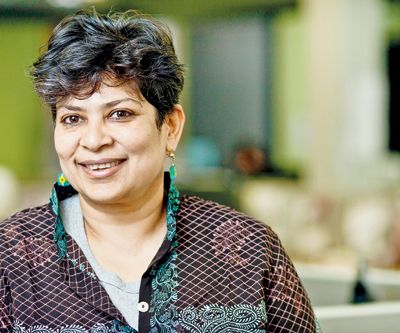privacy
With access to private spaces taken away on account of the pandemic, suddenly couples from liberal and affluent backgrounds found themselves in the same position as couples from less privileged backgrounds – desperately looking for pockets of privacy.
So, what are the risks in a marriage? Well, the first and the most obvious one is that you don’t know if the partner you’ve chosen or has been chosen for you will make you happy. In the Indian context, even if they do make you happy, the family might not be too thrilled about the match.
In a society that restricts one’s expression of sexuality and perpetuates patriarchal gender norms, there is little room offered for open exploration. With no Comprehensive Sexuality Education (CSE) in schools and no conversation about sexuality with parents, children are ill-equipped to navigate their puberty as adolescents, and dating and relationships as young adults.
If students of such young ages can have the agency to work around hard-wired issues of sexuality and privacy, bearing in mind consent, choice and failure as part of life, we see no reason for this sense of agency to not expand one’s sense of belonging and easily create change.
Is business work? Can business that involves providing sexual services be understood as work? If work is any mental or physical activity performed for a result, then for the individual performing the activity sex work is work. If work is any activity performed as a means of survival, then sex work is work.
Is there anything about my sexuality that is private anymore? What happened to the unspoken rule of not discussing one’s sexual life in the open? What happened to the sleazy jokes and the complete silence around sexuality that I remember from the previous generation?
Apart from systematic exclusions faced by individuals, evidently the mandatory use of a biometric-based digital ID has also reshaped the understanding of an individual’s agency and right to bodily autonomy. Gender and sexuality seem to no longer be matters of an individual’s right to privacy. With digitisation, disclosure of one’s gender and sexuality has become a hindrance to accessing one’s rights.
Bishakha Datta is an Indian filmmaker, activist and a former journalist. She runs Point of View, a Mumbai based non-profit,…
Adsa Fatima is a feminist, trainer and resource person working with Sama Resource Group for Women and Health. In this interview, she shares her insights on issues of privacy, safety and inclusion in the context of reproductive health, sexuality and rights, and the family and social environment that influence individual choices and decisions
Sex and technology link in many different ways – whether its helps overcome a disability or separation from a loved one, or is simply be a way to increase pleasure and excitement.
In our mid-month issue Shilpa Phadke brings us an interesting mix of ideas woven from narratives of pleasure, danger, and resistance, among others, with regard to the digital streets of online spaces, and explores the conditions of possibility that will allow us to have fun in the online public space that is the Internet…
In our mid-month issue, we have Mamatha Karollil writing about how she asserted herself after an incident of privacy violation when a nude picture of herself was seen by someone from work without her consent, and how ripping through, or not getting into, the cocoon of shame and dishonour, can prevent much distress…
While we are struggling with the vicissitudes brought on by the pandemic we are also forced to spend more time online, to look for resources in terms of health care or caregivers, to reach out to people and build a communities of care, to take a break, or to try and hook-up online for a while.
Period tracking applications can also inform you about your general reproductive health and also caution you in case of an anomaly with respect to it. As menstruators in our undergraduate years, the primary reason I saw my friends using period trackers were to keep a track of when to carry menstrual products to college or avoid the risks of pregnancy.
On the other hand, in Abhay’s newly discovered wonderland, everything seemed to be awfully right. Soon, he began receiving proposals for sex-dates. Initially such proposals shocked him; for it took him a few months to get used to the fact that sex with men was only a click away.















